US Priorities at the UN General Assembly
Dr. Esther Brimmer, Assistant Secretary of State for International Organizations
Photos | Transcript | View NY Event
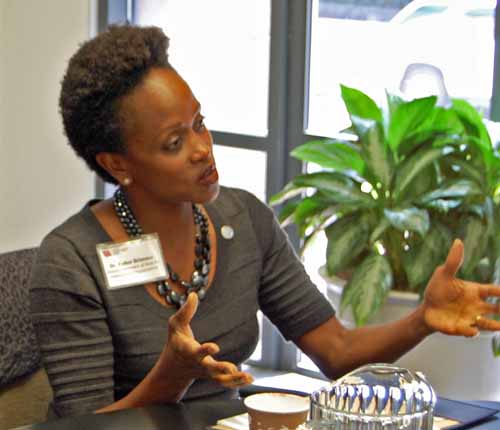 Washington, DC—On September 19, 2012, Assistant Secretary of State for International Organizations Esther Brimmer spoke to WFPG on US priorities in the 67th session of the UN General Assembly. Brimmer's remarks emphasized the importance the US places on working through the UN and other multilateral institutions in resolving conflict and humanitarian crises, such as the case of Syria. She also discussed the importance of UN reforms and the progress of the Millennium Development Goals.
Washington, DC—On September 19, 2012, Assistant Secretary of State for International Organizations Esther Brimmer spoke to WFPG on US priorities in the 67th session of the UN General Assembly. Brimmer's remarks emphasized the importance the US places on working through the UN and other multilateral institutions in resolving conflict and humanitarian crises, such as the case of Syria. She also discussed the importance of UN reforms and the progress of the Millennium Development Goals.
Brimmer addressed the attack earlier that week on the American consulate in Benghazi, expressing the diplomatic community’s absolute rejection of violence as a means of expression. Stating that “no issue justifies violence,” Brimmer emphasized that being able to agree and disagree peacefully is one of the central tenants of diplomacy.
Syria was the primary focus of Brimmer’s remarks; she called the issue “one of the most serious on the international agenda.” The role of the UN on this issue is multifaceted, because while predominantly a security issue, the violence in Syria has also created a huge humanitarian and refugee crisis. She expressed disappointment in Russia and China in the exercise of their veto on the Security Council resolutions addressing the conflict. Brimmer also emphasized that there are still many ways the UN is playing a role in the crisis. The Human Rights Council, for example, has held three sessions on Syria already, and has authorized a Commission of Inquiry that is providing “some of the clearest, professional, impartial documentation of the situation in Syria.” The UN is also at the center of humanitarian efforts to handle the stream of refugees fleeing into neighboring states. Brimmer believes that along with the UN’s humanitarian contributions, the UN system can be most helpful when the majority of the fighting has stopped and the Syrian people can demand accountability from those who helped perpetrate the violence. She also asserted that the constant documentation and the strength of international legal mechanisms will give the Syrian people a legitimate pathway to seeking justice. This is an example of the important role that multilateral institutions are playing today, and why the US views them as a critical means of dealing with complex international problems.
Brimmer focused on the Obama administration’s expansive use of diplomacy and the multilateral system to address global challenges such as nuclear nonproliferation, good governance, security in Africa, and the protection of the rule of law. According to Brimmer, recognizing the interconnected nature of these challenges is key in addressing issues such as Somalia, where issues of security are linked to governance and environmental sustainability. Brimmer argues that if solutions are to be found, these issues cannot be addressed in isolation.
Brimmer also stressed the need for continued reforms within the UN system, particularly in budget and management issues, focusing on stream-lining the system and making it more transparent. She highlighted the fact that last year—for only the second time in history—the Secretary General supported a smaller budget than the previous year. She also pointed to the increasing tendency of UN agencies to post their audits online as a means of transparency. Returning to the expanded use of diplomacy by the Obama administration, Brimmer argued for this “type of long-term work that helps make a stronger institution.”
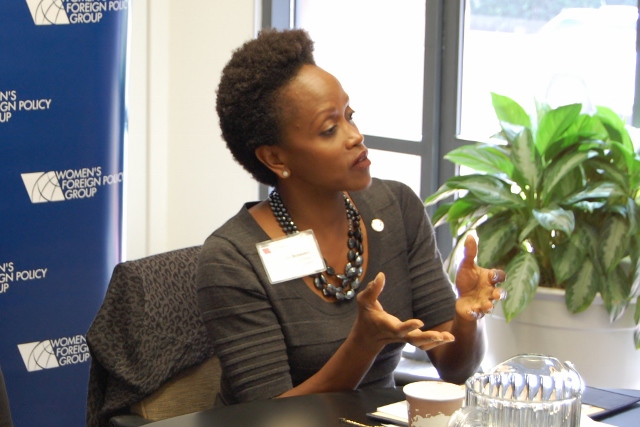 |
 |
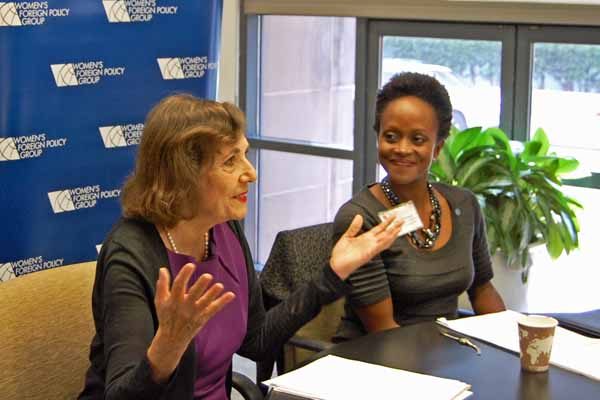 |
Assistant Secretary Esther Brimmer addresses the WFPG
|
|
WFPG President Patricia Ellis introduces
Assistant Secretary Brimmer
|
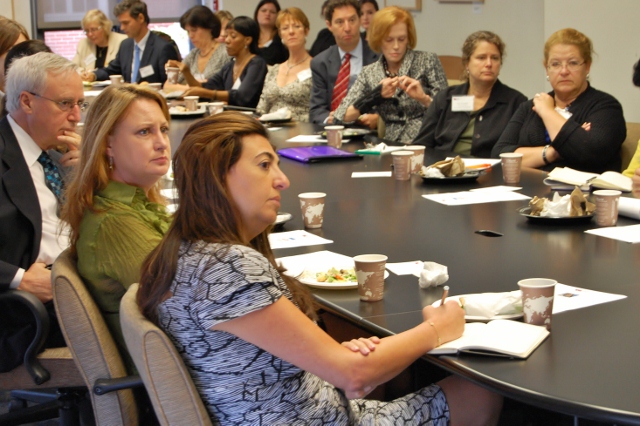 |
 |
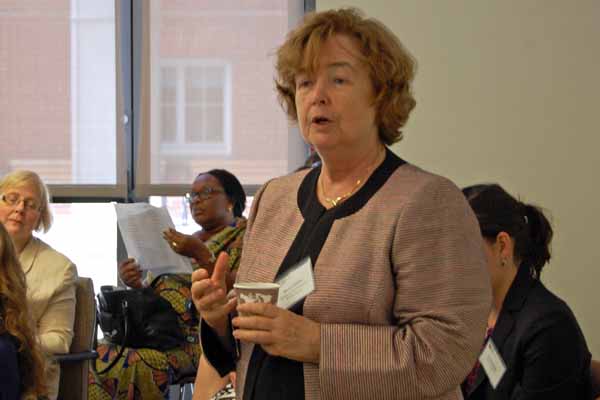 |
Ambassador Houda Nonoo of Bahrain listens to remarks
|
|
Board Member Dawn Calabia asks a question
|
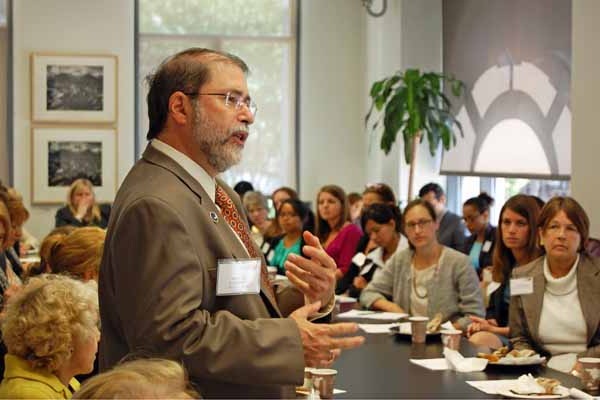 |
 |
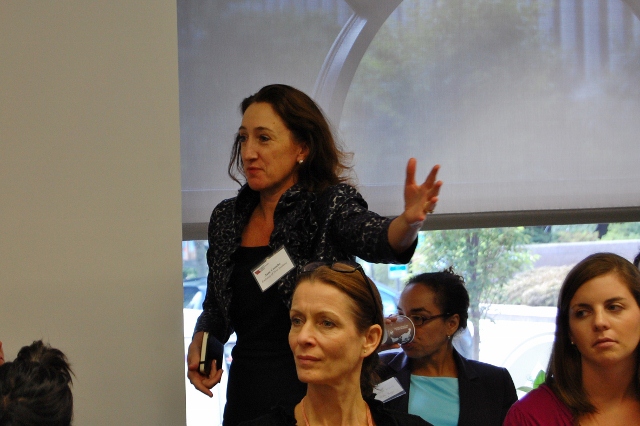 |
| |
|
|
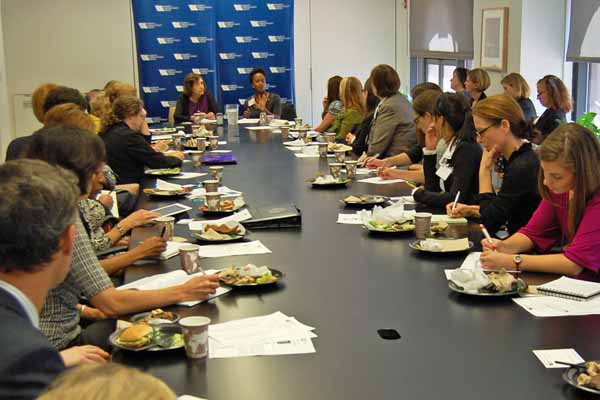 |
 |
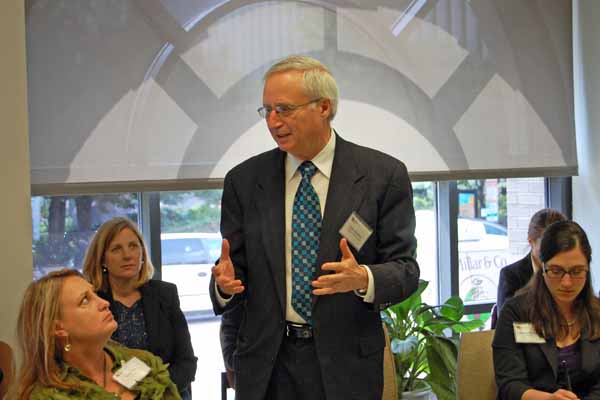 |
| |
|
|